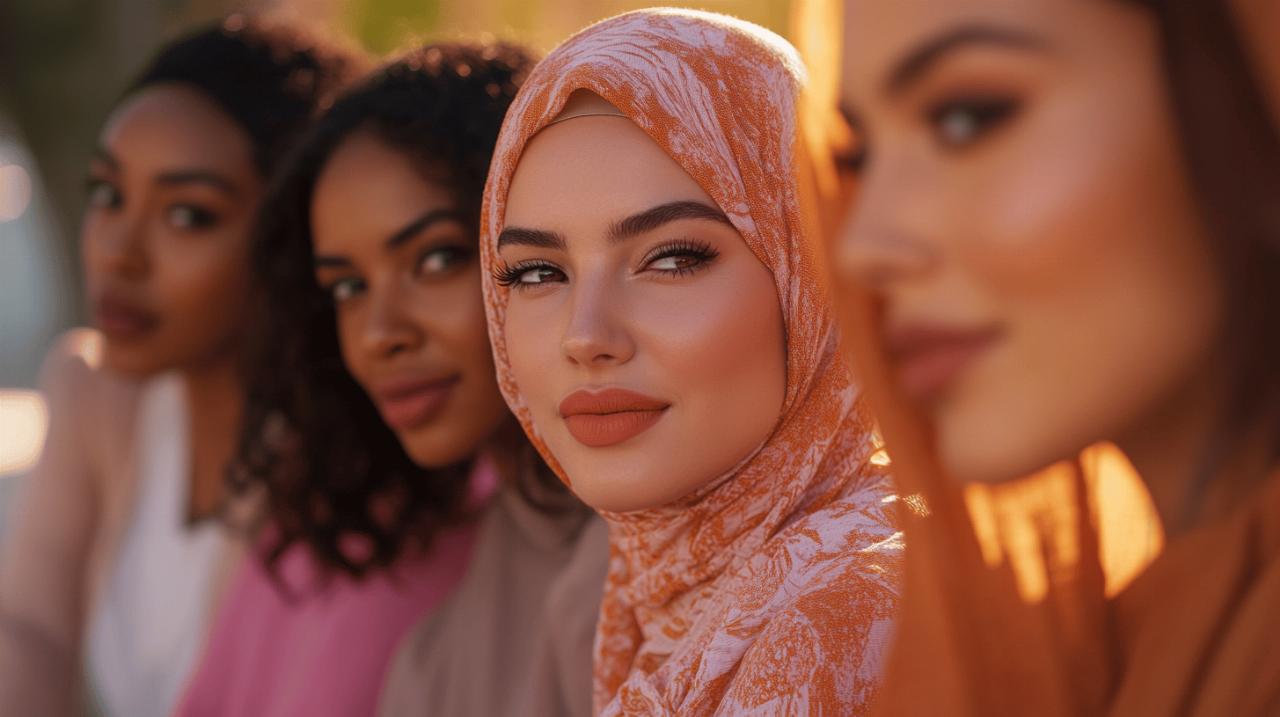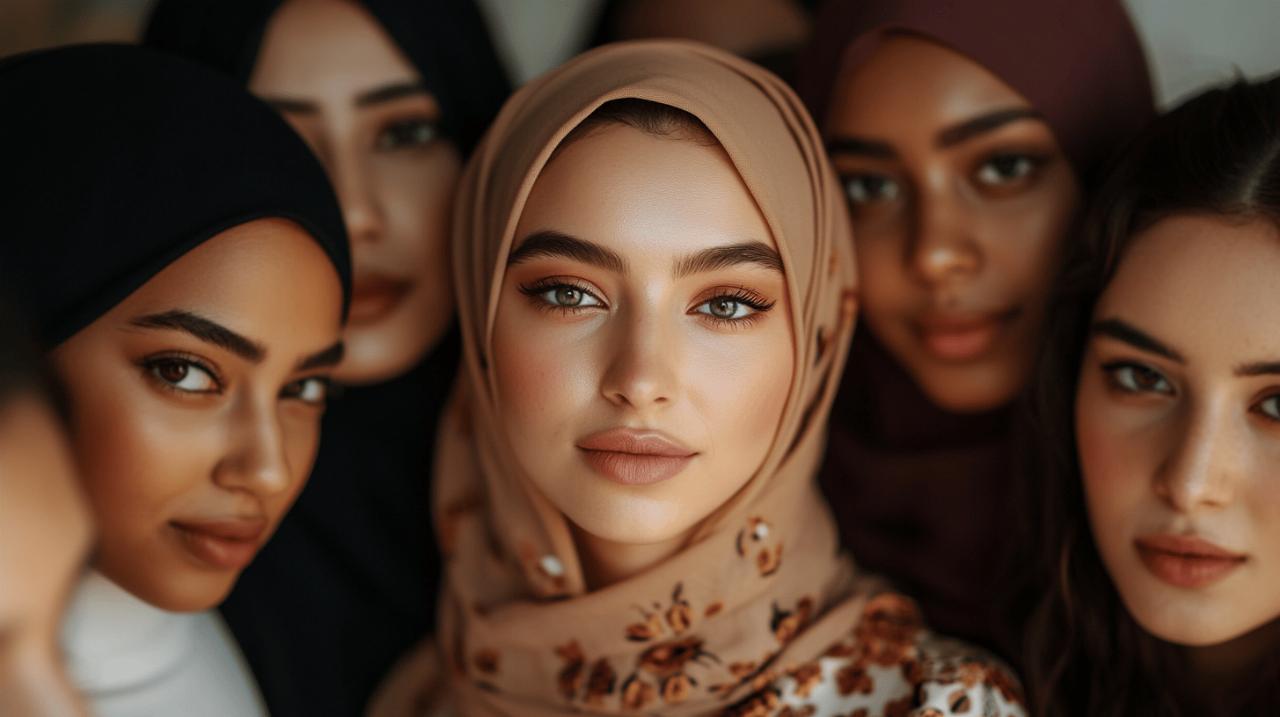The holy month of Ramadan invites Muslims around the world to engage in fasting, prayer, and spiritual reflection. For women, particularly those who wear the hijab and follow Islamic principles of modesty, questions often arise about how beauty routines fit into the sacred rhythm of this time. Many Muslim women living in London and beyond find themselves navigating the balance between maintaining their personal sense of confidence and honouring the deeper spiritual intentions that Ramadan calls for. This exploration delves into testimonials from believing women who share their experiences with cosmetics during this blessed month, alongside practical advice on modest makeup tutorials that respect both faith and personal expression.
Understanding personal choices and spiritual intentions during ramadan
Balancing beauty routines with religious devotion
Ramadan is a time when many Muslim women reassess their daily habits, including the role of makeup in their lives. For some, this month becomes an opportunity to simplify beauty routines, redirecting energy towards prayer and reflection. Aisha, a teacher from East London, remarks that she tends to scale back on cosmetics during Ramadan as a personal choice that allows her to focus inwards. She continues with her basic skincare but finds that reducing makeup helps her dedicate more time to spiritual growth. This approach is not about forbidding oneself from beauty but rather about consciously choosing where to place one's attention. Many women find that a simplified routine helps them feel more connected to the essence of fasting and devotion, creating space for inner peace and contemplation.
The Role of Intention in Cosmetic Use
Fatima, a university student, emphasises the importance of intention when it comes to wearing makeup during Ramadan. She believes that if cosmetics are worn to please others or to draw excessive attention, it may be worth reconsidering during this sacred time. However, if makeup serves as a tool for personal confidence without distracting from religious obligations, she sees no issue with its use. This perspective aligns with Islamic teachings that place great emphasis on the purity of intention behind every action. The Quran encourages modesty and suggests that adornment should be reserved primarily for one's husband and mahrams, yet there is room for interpretation based on individual circumstances and sincerity. The consensus among many believing women is that moderation and a clear understanding of why one chooses to wear makeup are key factors in making this decision during Ramadan.
Perspectives from muslim women across london
Testimonials on Scaling Back Makeup for Inner Focus
Conversations with Muslim women across London reveal a rich tapestry of experiences and beliefs regarding makeup during Ramadan. For some, this month offers a welcomed break from the pressures of daily beauty routines, allowing them to embrace a more natural appearance. One woman shared that she appreciates the chance to let her skin breathe and to focus on maintaining healthy habits rather than layering on cosmetics. Others mention that scaling back on makeup during fasting hours helps them feel more spiritually aligned, as they are less concerned with outward appearances and more invested in their relationship with faith. These testimonials highlight a shared desire to honour the spiritual essence of Ramadan whilst still respecting personal choices and individual journeys.
Maintaining confidence whilst honouring sacred time
For some women, makeup has been a vital tool in building confidence, particularly in environments where they may have faced challenges related to identity or modesty. One woman, who began wearing the hijab during middle school, recounts how makeup helped her navigate a difficult period marked by bullying. She argues that wearing makeup is not about impressing others but rather about enhancing her own features and feeling comfortable in her skin. During Ramadan, she continues to wear cosmetics but does so with a heightened awareness of her intentions. This approach reflects a broader understanding within the Muslim community that personal choices regarding beauty are deeply individual and should be respected. The balance lies in ensuring that such choices do not overshadow the spiritual goals of the month, including self-discipline, charity, and devotion to prayer.
Modest makeup tutorials: a practical guide for ramadan
Natural and Fresh Looks for Fasting Days
 For those who choose to wear makeup during Ramadan, modest makeup tutorials offer practical guidance on achieving a natural and fresh appearance. The goal is to enhance one's features subtly without drawing undue attention or compromising the principles of modesty. Light coverage foundations, neutral eyeshadows, and soft lip colours are popular choices among women who wish to maintain a polished look whilst fasting. The emphasis is on creating a look that feels authentic and comfortable, rather than one that is overly dramatic or time-consuming. Many women also opt for wudu-friendly cosmetics, which are formulated to allow water to reach the skin during ablution. This consideration is particularly important during Ramadan, as maintaining ritual purity is a central aspect of worship. Halal makeup brands have gained popularity for their commitment to using permissible ingredients and ensuring that products do not interfere with religious practices.
For those who choose to wear makeup during Ramadan, modest makeup tutorials offer practical guidance on achieving a natural and fresh appearance. The goal is to enhance one's features subtly without drawing undue attention or compromising the principles of modesty. Light coverage foundations, neutral eyeshadows, and soft lip colours are popular choices among women who wish to maintain a polished look whilst fasting. The emphasis is on creating a look that feels authentic and comfortable, rather than one that is overly dramatic or time-consuming. Many women also opt for wudu-friendly cosmetics, which are formulated to allow water to reach the skin during ablution. This consideration is particularly important during Ramadan, as maintaining ritual purity is a central aspect of worship. Halal makeup brands have gained popularity for their commitment to using permissible ingredients and ensuring that products do not interfere with religious practices.
Skincare essentials during the holy month
Beyond cosmetics, skincare becomes an essential focus during Ramadan, particularly given the challenges of fasting and the importance of hydration. Many women prioritise gentle cleansers, nourishing moisturisers, and hydrating serums to keep their skin healthy throughout the month. Maintaining a consistent skincare routine can help counteract the effects of reduced water intake during fasting hours and ensure that the skin remains radiant and well-cared-for. Some women choose to forgo makeup entirely during Ramadan, embracing a pared-down aesthetic that allows their natural beauty to shine through. This decision is often accompanied by a greater investment in skincare, as the focus shifts from concealing or enhancing features to nurturing the skin itself. Whether one chooses to wear makeup or not, the underlying principle remains the same: caring for oneself in a way that aligns with both personal values and religious teachings.
Embracing inner beauty and self-reflection
Finding peace through simplified routines
Ramadan offers a unique opportunity for Muslim women to explore the concept of inner beauty and to reflect on the ways in which external appearances intersect with spiritual well-being. For many, simplifying beauty routines during this month becomes a form of worship in itself, a tangible expression of self-discipline and devotion. By reducing the time and energy spent on makeup, women can redirect their focus towards prayer, reading the Quran, and engaging in acts of charity. This shift is not about diminishing the value of personal care but rather about recognising that true beauty emanates from within. The peace that comes from a simplified routine can be profound, offering a sense of clarity and purpose that enhances the overall Ramadan experience.
Respecting personal boundaries and beliefs
Ultimately, the decision of whether or not to wear makeup during Ramadan is deeply personal and should be respected within the Muslim community. Islamic jurisprudence offers guidance on modesty and permissible practices, yet there is also room for individual interpretation and personal choice. Women navigate these decisions based on their own understanding of faith, their cultural backgrounds, and their unique circumstances. What matters most is that each woman feels empowered to make choices that align with her values and that she is supported in her journey towards spiritual growth. Ramadan is a time for self-reflection, compassion, and connection with the divine. Whether one chooses to embrace a natural look, to wear modest makeup, or to continue with their usual beauty routine, the focus remains on nurturing the soul and striving for a deeper understanding of what it means to live a life of faith and devotion.

Comments are closed